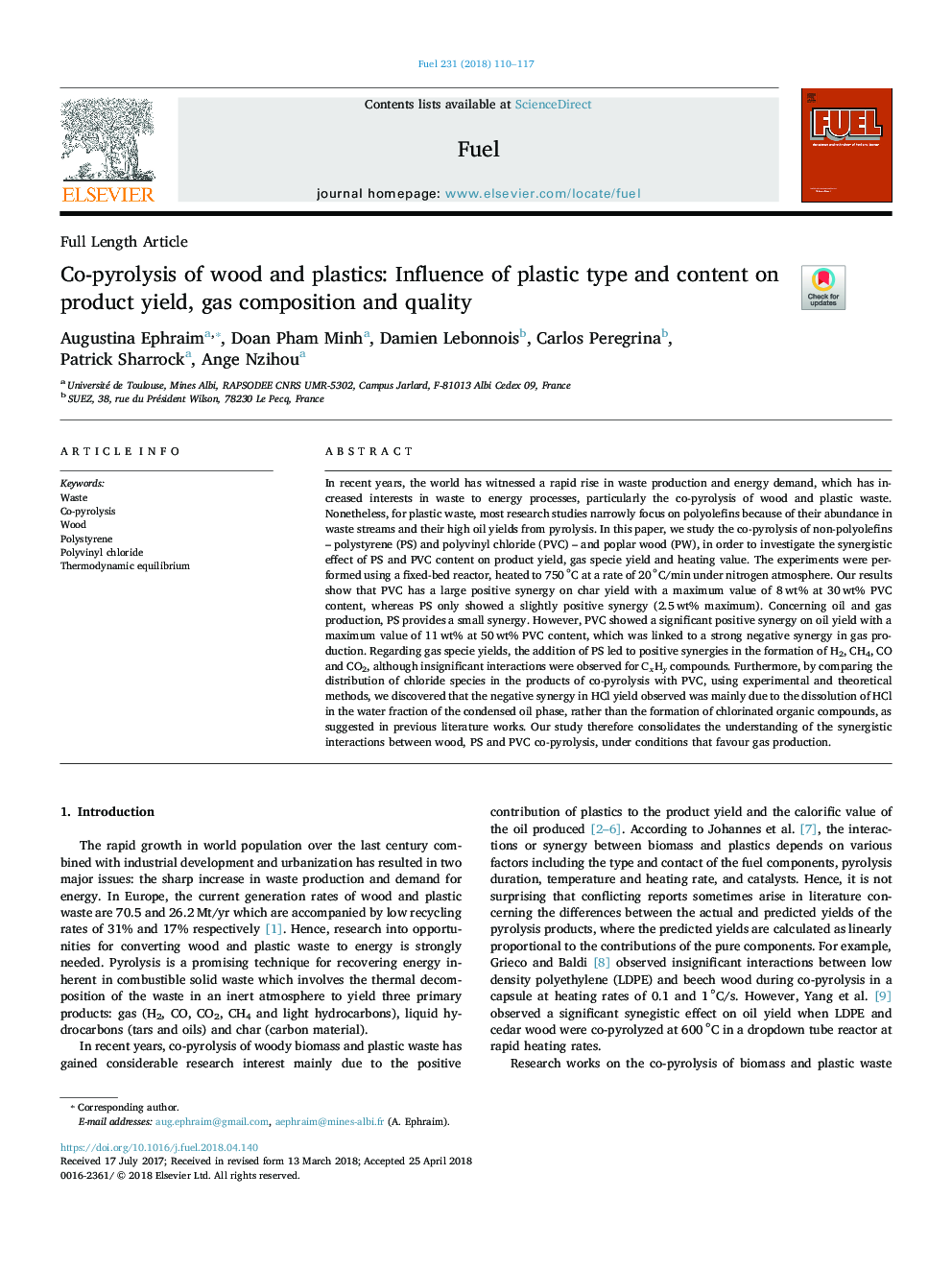| کد مقاله | کد نشریه | سال انتشار | مقاله انگلیسی | نسخه تمام متن |
|---|---|---|---|---|
| 6630524 | 1424933 | 2018 | 8 صفحه PDF | دانلود رایگان |
عنوان انگلیسی مقاله ISI
Co-pyrolysis of wood and plastics: Influence of plastic type and content on product yield, gas composition and quality
ترجمه فارسی عنوان
همبستگی پیررولیز چوب و پلاستیک: تاثیر نوع و محتوای پلاستیکی بر عملکرد محصول، ترکیب گاز و کیفیت
دانلود مقاله + سفارش ترجمه
دانلود مقاله ISI انگلیسی
رایگان برای ایرانیان
کلمات کلیدی
هدر، کمپیریلیس، چوب، پلی استایرن، کلرید پلی وینیل، تعادل ترمودینامیکی،
موضوعات مرتبط
مهندسی و علوم پایه
مهندسی شیمی
مهندسی شیمی (عمومی)
چکیده انگلیسی
In recent years, the world has witnessed a rapid rise in waste production and energy demand, which has increased interests in waste to energy processes, particularly the co-pyrolysis of wood and plastic waste. Nonetheless, for plastic waste, most research studies narrowly focus on polyolefins because of their abundance in waste streams and their high oil yields from pyrolysis. In this paper, we study the co-pyrolysis of non-polyolefins - polystyrene (PS) and polyvinyl chloride (PVC) - and poplar wood (PW), in order to investigate the synergistic effect of PS and PVC content on product yield, gas specie yield and heating value. The experiments were performed using a fixed-bed reactor, heated to 750â¯Â°C at a rate of 20â¯Â°C/min under nitrogen atmosphere. Our results show that PVC has a large positive synergy on char yield with a maximum value of 8â¯wt% at 30â¯wt% PVC content, whereas PS only showed a slightly positive synergy (2.5â¯wt% maximum). Concerning oil and gas production, PS provides a small synergy. However, PVC showed a significant positive synergy on oil yield with a maximum value of 11â¯wt% at 50â¯wt% PVC content, which was linked to a strong negative synergy in gas production. Regarding gas specie yields, the addition of PS led to positive synergies in the formation of H2, CH4, CO and CO2, although insignificant interactions were observed for CxHy compounds. Furthermore, by comparing the distribution of chloride species in the products of co-pyrolysis with PVC, using experimental and theoretical methods, we discovered that the negative synergy in HCl yield observed was mainly due to the dissolution of HCl in the water fraction of the condensed oil phase, rather than the formation of chlorinated organic compounds, as suggested in previous literature works. Our study therefore consolidates the understanding of the synergistic interactions between wood, PS and PVC co-pyrolysis, under conditions that favour gas production.
ناشر
Database: Elsevier - ScienceDirect (ساینس دایرکت)
Journal: Fuel - Volume 231, 1 November 2018, Pages 110-117
Journal: Fuel - Volume 231, 1 November 2018, Pages 110-117
نویسندگان
Augustina Ephraim, Doan Pham Minh, Damien Lebonnois, Carlos Peregrina, Patrick Sharrock, Ange Nzihou,
